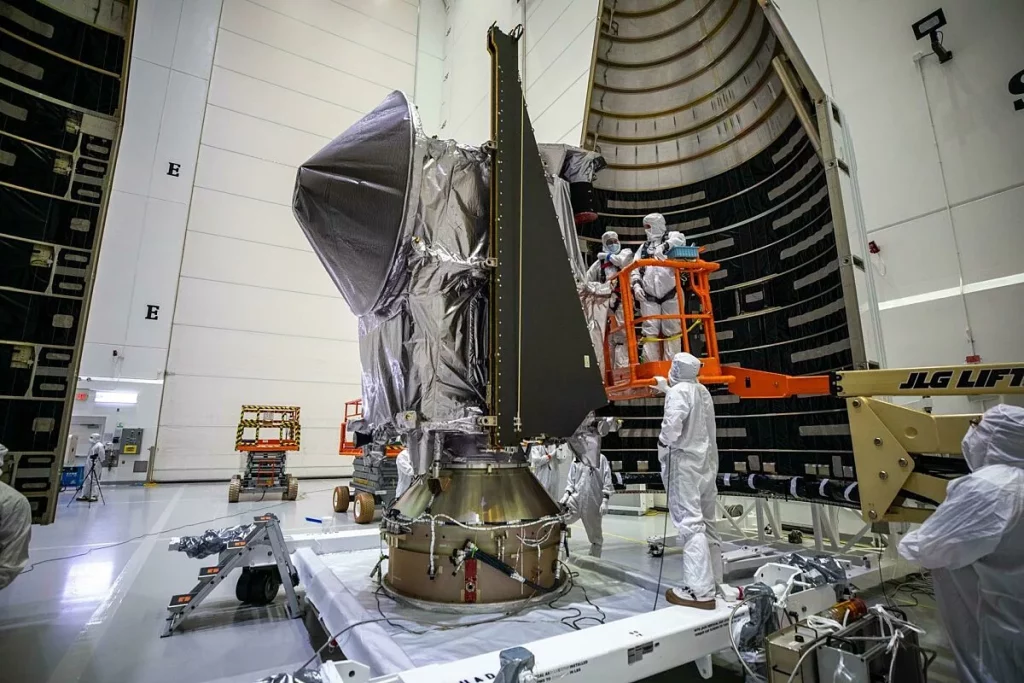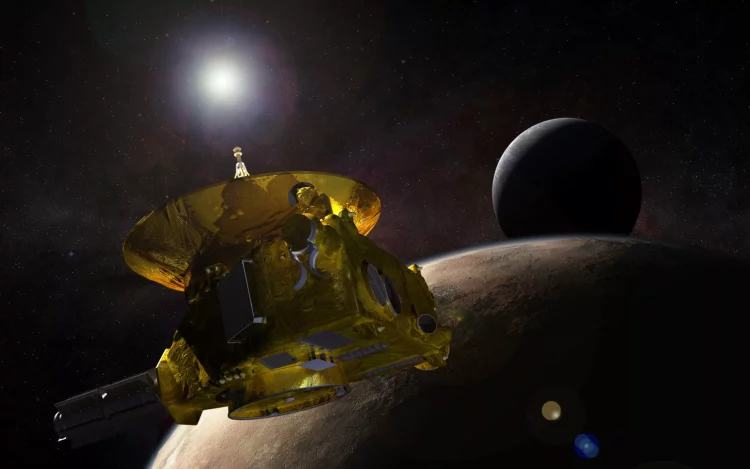Introduction
Competed planetary missions represent a dynamic and essential aspect of space exploration, where scientific and engineering teams from around the world vie to achieve groundbreaking discoveries about our solar system and beyond. These missions, driven by rigorous competition, are instrumental in advancing our knowledge of planetary science, uncovering the mysteries of distant worlds, and pushing the boundaries of human exploration. This article delves into the nature of competed planetary missions, their historical context, objectives, key examples, and their profound impacts on our understanding of the cosmos.
Historical Context and Evolution
The concept of planetary missions has evolved significantly since the dawn of space exploration. Competing missions have played a crucial role in shaping our knowledge of the solar system and beyond. Here’s an overview of the historical development and milestones of planetary missions:
- Early Space Exploration: The early 1960s marked the beginning of planetary exploration with missions such as NASA’s Mariner series, which provided the first close-up images of Mars and Venus. These missions laid the groundwork for future planetary exploration and sparked interest in exploring other celestial bodies.
- The Space Race Era: During the Space Race, both the United States and the Soviet Union launched a series of missions aimed at exploring the Moon, Mars, and Venus. Notable achievements include the Soviet Luna program, which successfully landed on the Moon, and NASA’s Viking missions, which conducted detailed studies of Mars.
- The Modern Era: The late 20th and early 21st centuries saw the advent of more sophisticated spacecraft and international collaborations. Missions such as the Hubble Space Telescope and the Mars rovers (Spirit, Opportunity, Curiosity, and Perseverance) exemplify the advancements in technology and scientific ambition.
Objectives of Competing Planetary Missions
Competed planetary missions serve several key objectives, each contributing to our broader understanding of the solar system:
- Exploration and Discovery: The primary objective of planetary missions is to explore and discover new information about celestial bodies. This includes studying planetary surfaces, atmospheres, and interiors to gain insights into their composition, structure, and evolution.
- Search for Life: Many missions are designed with the goal of searching for signs of life or conditions conducive to life. This includes investigating the potential habitability of planets and moons, examining organic compounds, and analyzing atmospheric and surface conditions.
- Understanding Planetary Systems: Competing missions contribute to our understanding of planetary systems, including the formation and evolution of planets, moons, and other celestial objects. This knowledge helps us place our solar system within the broader context of planetary science.
- Technological Innovation: Planetary missions drive technological advancements, including the development of new spacecraft, instruments, and analytical techniques. These innovations often have broader applications beyond planetary science.
High-Profile Examples of Competing Planetary Missions
Several high-profile planetary missions have demonstrated the spirit of competition and scientific excellence. Here are some notable examples:

1. NASA’s Mars Rovers
NASA’s Mars rovers have been among the most ambitious and successful planetary missions. Each rover has contributed to our understanding of Mars through its unique scientific objectives and technological advancements:
- Spirit and Opportunity: Launched in 2003, Spirit and Opportunity were twin rovers designed to explore the Martian surface. Spirit focused on exploring the Gusev Crater, while Opportunity investigated the Meridiani Planum region. Both rovers made significant discoveries, including evidence of past water activity and diverse mineral deposits.
- Curiosity: Launched in 2011, Curiosity is a car-sized rover with advanced scientific instruments designed to investigate the Gale Crater on Mars. Curiosity’s mission includes studying the planet’s climate, geology, and potential for past life. The rover’s discoveries have provided valuable insights into Mars’ history and its potential habitability.
- Perseverance: Arriving on Mars in 2021, Perseverance is equipped with cutting-edge technology, including the Ingenuity helicopter, which conducted the first powered flight on another planet. The rover’s objectives include searching for signs of ancient microbial life and collecting samples for future return missions.
2. ESA’s Rosetta Mission
The European Space Agency’s (ESA) Rosetta mission, launched in 2004, was a pioneering endeavor to study a comet up close. Rosetta’s key achievements include:
- Comet 67P/Churyumov-Gerasimenko: Rosetta’s primary target was Comet 67P/Churyumov-Gerasimenko. The spacecraft orbited the comet and deployed the Philae lander, which successfully landed on the comet’s surface in 2014. The mission provided detailed data on the comet’s composition, structure, and activity.
- Scientific Contributions: Rosetta’s observations revealed the complex nature of comets, including the presence of organic molecules and water ice. The mission’s findings have enhanced our understanding of the early solar system and the role of comets in delivering essential compounds to Earth.
3. JAXA’s Hayabusa2 Mission
The Japan Aerospace Exploration Agency (JAXA) launched the Hayabusa2 mission in 2014 with the goal of studying and returning samples from an asteroid. Key highlights of the mission include:
- Asteroid Ryugu: Hayabusa2 targeted the near-Earth asteroid Ryugu. The spacecraft conducted detailed observations and collected samples from the asteroid’s surface and subsurface. The mission aimed to analyze the asteroid’s composition and provide insights into the early solar system.
- Sample Return: In December 2020, Hayabusa2 successfully returned samples from Ryugu to Earth. The samples are expected to provide valuable information about the asteroid’s composition and the conditions that existed in the early solar system.
4. NASA’s Voyager Probes
NASA’s Voyager probes, launched in 1977, represent one of the most ambitious planetary exploration missions. Although primarily designed for flybys of the outer planets, the Voyagers have continued to provide valuable data as they venture into interstellar space:
- Voyager 1 and Voyager 2: Voyager 1’s flybys included Jupiter and Saturn, while Voyager 2 visited Jupiter, Saturn, Uranus, and Neptune. The probes made groundbreaking discoveries, including detailed observations of the outer planets and their moons.
- Interstellar Mission: Both Voyagers have now entered interstellar space, providing data on the heliosphere’s boundary and the interstellar medium. Their continued operation offers insights into the solar system’s interaction with the broader galaxy.
Impact on Planetary Science and Future Missions
Competed planetary missions have had a profound impact on planetary science and continue to shape the future of space exploration:
- Scientific Discoveries: Each mission contributes to our understanding of planetary systems, including the formation, composition, and evolution of planets, moons, and other celestial bodies. Discoveries from these missions often lead to new research questions and avenues for exploration.
- Technological Advancements: The development of spacecraft, instruments, and analytical techniques for planetary missions drives technological innovation. Many of these advancements have applications beyond planetary science, benefiting other fields and industries.
- International Collaboration: Competing planetary missions often involve collaborations between space agencies, research institutions, and industry partners. These collaborations enhance the effectiveness of missions and promote the exchange of knowledge and expertise.
- Public Engagement: Planetary missions capture the public’s imagination and inspire interest in science and exploration. The imagery and discoveries from these missions foster a sense of wonder and curiosity about the universe.
Challenges and Opportunities
While competing planetary missions offer numerous benefits, they also present challenges that require ongoing attention:
- Funding and Resources: Planetary missions require substantial funding and resources. Securing financial support and managing budgets are critical for ensuring the success and sustainability of missions.
- Technical Complexity: Designing and operating spacecraft for planetary exploration involves significant technical complexity. Overcoming engineering challenges and ensuring the reliability of spacecraft systems are essential for mission success.
- Data Management: Managing and analyzing the vast amounts of data generated by planetary missions requires advanced computational tools and techniques. Ensuring efficient data processing and interpretation is crucial for extracting meaningful insights.
- Mission Planning: Planning and executing planetary missions involve careful consideration of scientific objectives, mission design, and operational strategies. Effective mission planning is essential for achieving the desired outcomes and maximizing scientific return.
Future Directions in Planetary Exploration
The future of planetary exploration promises exciting advancements and opportunities:
- Human Exploration: Future missions may involve human exploration of the Moon, Mars, and other celestial bodies. Human missions will enable more detailed exploration and provide opportunities for in-situ research and experimentation.
- Advanced Technologies: The development of advanced technologies, such as autonomous spacecraft, advanced propulsion systems, and artificial intelligence, will enhance our ability to explore and study distant worlds.
- Expanded Targets: Future missions may target a broader range of celestial bodies, including asteroids, moons, and exoplanets. Exploring diverse targets will provide a more comprehensive understanding of planetary systems.
- International Collaboration: Continued international collaboration will play a key role in advancing planetary exploration. Partnerships between space agencies, research institutions, and commercial entities will drive innovation and enhance mission capabilities.
Conclusion
Competed planetary missions represent a cornerstone of space exploration, driving scientific discovery, technological innovation, and international collaboration. From the early days of space exploration to the cutting-edge missions of today, these endeavors have expanded our knowledge of the solar system and beyond. As we look to the future, the spirit of competition and curiosity will continue to











































Discussion about this post